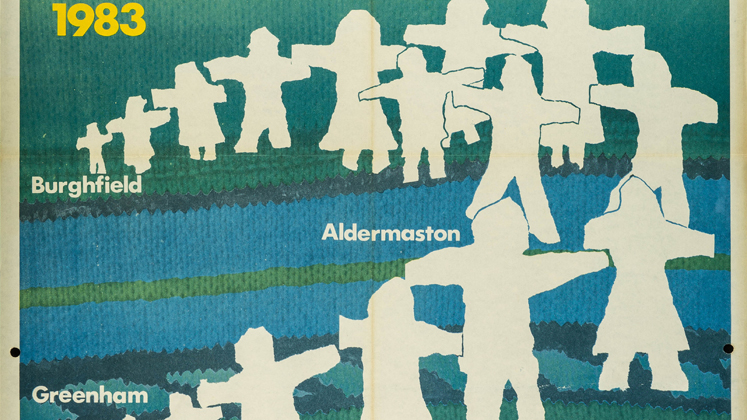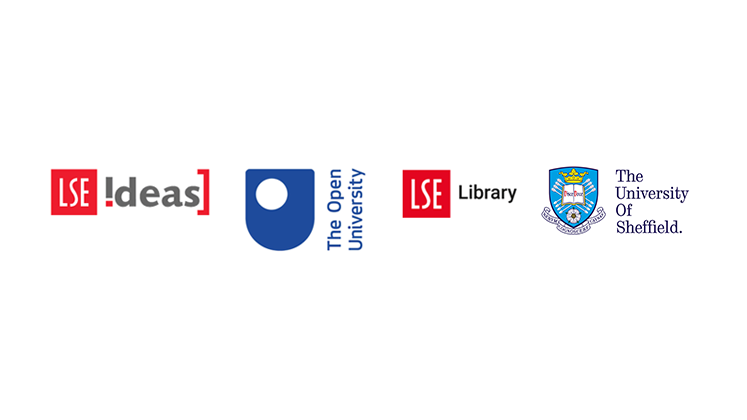The early 1980s saw a resurgence of Cold War tensions to levels not seen since the 1962 Cuban Missile Crisis. Amidst worsening relations between the West and the Soviet bloc, new nuclear weapons were deployed across Western Europe. This was compounded with increasingly aggressive rhetoric on both sides, as American President Ronald Reagan denounced the Soviet Union as ‘the evil empire’. With growing hostility between the two sides, and with the addition of more sophisticated nuclear weapons, a nuclear war with catastrophic consequences looked increasingly possible.
In response, unprecedented numbers of citizens in the UK and around the world took action to voice their objections to such a scenario and to urge their governments to change course.This peace activism took many different forms – from the iconic Women’s Peace Camp at Greenham Common and the historic Hyde Park rally on 22 October 1983 to more local, grassroots campaigning. By looking at the peace movement in the UK, we can see how the Cold War was experienced by citizens across the UK, and how they mobilised to bring about profound changes in British policies and the course of the Cold War itself.

This online resource, created by Dr Luc-André Brunet, features newly digitised documents from the collection of the Campaign for Nuclear Disarmament (CND), housed at LSE Library, providing new insights into different aspects of the British peace movement in the 1980s. These are complemented with video commentary by activists, policymakers, and academics. This resource allows us to re-examine UK peace activism in the 1980s along six themes:
This online resource is a collaboration between LSE IDEAS and The Open University. It has received generous support from the LSE Knowledge Exchange and Impact Fund and invaluable cooperation with LSE Library.
Please complete this short survey to let us know what you think of this online resource.
